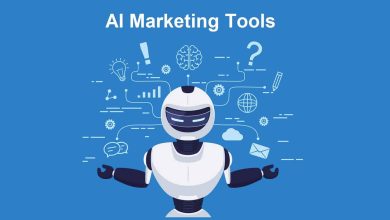
While AI has proven instrumental in transforming communications, data analysis and other aspects of business, many content creators have been relatively hesitant to fully embrace AI. In fact, a recent Awin survey found that as many as 42% of content creators feel that AI poses some level of threat to their careers.
However, content pros — whether they be freelancers, agency creatives, marketers at a major corporation or social media influencers — shouldn’t hesitate to fully embrace AI. In fact, many content creators have already done exactly that, even if they aren’t fully aware of it.
Expanding Understanding of What AI Is
When content professionals initially hear the term AI, their thoughts tend to jump to generative AI tools like ChatGPT, Midjourney or Runway. At first brush, tools that can generate marketing copy, images and even video with just a few text prompts do feel like they present an existential threat to content creators.
However, it’s rare that these tools create content assets that people publish as-is, with human content creators generally preferring to use AI as a collaborator or copilot for ideation and first drafts. What’s more, generative AI tools are far from the only application of AI. Many creators use generative AI to enhance their efficiency or creativity, but quite often, content creators don’t even realize when they are using AI.
For example, in the writing community, Grammarly is one of the most popular tools for checking for grammar and spelling mistakes, as well as getting insights on how the writer can improve their style and delivery.
Prior to the current AI boom, few people thought of Grammarly as AI software, but that is precisely what it is. Grammarly’s AI-powered grammar checker was developed by learning from correct and incorrect writing examples so it could identify mistakes and offer writing suggestions.
As such, a key reason why content pros shouldn’t hesitate to embrace AI is because they are likely already using AI-powered tools, even if they don’t necessarily recognize when AI is working under the hood.
This lack of understanding may contribute to the recent findings of joint research between Lightricks and the American Marketing Association (AMA). The study found that while 65% of marketing executives have received some form of formal AI training, only 34% of early-career marketers had received such training.
This led to significantly higher levels of executives using AI weekly (61% vs. 42%) and expressing confidence in AI’s potential to enhance creativity (55% vs. 33%). Essentially, the more a content professional knows about AI, and the more they’re empowered to dive in and experiment with AI, the more likely they are to feel comfortable with it and enjoy its benefits.
Key Benefits of Using AI in Content Creation
For those who understand the broader application of AI in content creation, the myriad benefits and use cases of AI tools are also more readily apparent. Indeed, marketers who use AI tools have reported a wide host of benefits.
In the aforementioned research from Lightricks and the AMA, 52% of marketers who used AI said it increased the quality of their content and 50% reported time savings, while 49% noted improvements in content quantity and 39% even said it improved their team collaboration.
This range of benefits helps illustrate the distinct ways that AI (including generative AI) can provide a powerful boost to content creators’ activities. Content creators could use generative AI for brainstorming, creating the outline of a blog post or personalizing existing content for different target groups. Image and video-focused generative AI tools can help creators produce more elaborate designs or images that they might not otherwise have the budget to create.
AI was also found to help content creators with tasks like defining their target audience, analyzing data and conducting research — all of which can help content professionals ensure that what they create is meaningful and relevant to their audiences. A deeper understanding of audiences, aided by AI, results in more personalized content that delivers the right message at the right time.
Increased efficiency, cost savings and the ability to produce higher-quality content are all poised to dramatically transform what content creators can achieve. For example, in 2024, indie music artist Washed Out released a music video that was entirely created using the AI video tool Sora. Paul Trillio, the music video’s director noted that he had the idea to create a clip using to film an “infinite zoom” concept for several years but lacked confidence that he could pull it off. “The surreal and hallucinatory aspects of AI allow you to explore and discover new ideas that you would have never dreamed of,” he said of the process that finally allowed him to realize his vision.
In this and other instances, having access to AI tools enables creators to more effectively bring their wildest ideas to life, when previously, financial or technological limitations would have made such expressions completely impossible.
Giving marketers and content creators the ability to create more exciting work at a fraction of the cost that would have been required previously can help unlock their full potential and result in more exciting content.
Leveraging AI to Create a Better Future for Content Pros
While some elements of AI certainly may pose a threat to content creators, the truth of the matter is that the majority of current applications of AI simply serve to streamline and optimize their work. Quite often, content pros are already using AI without realizing that it is what powers the tools and software they rely on.
As this understanding of what AI truly is and what it is capable of increases, expect to see more content pros come to embrace and appreciate the distinct ways AI can improve their business operations.




